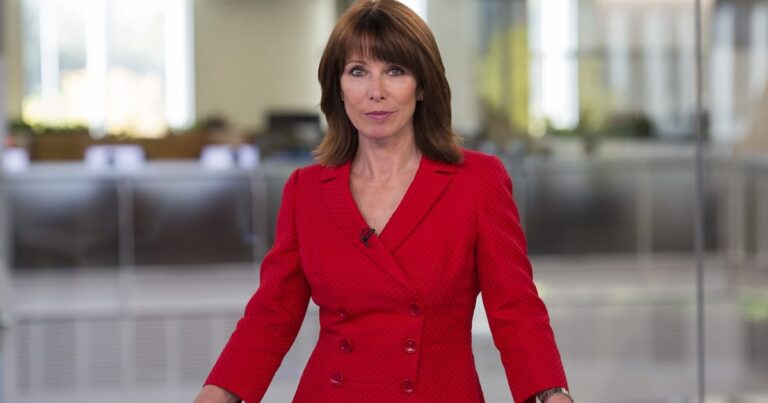The Rapture by Iris Kaltenback, which opens in theaters throughout Israel on Thursday, is an intense look at a troubled, lonely young woman whose life falls apart when her best friend has a baby.
Kaltenback has said in interviews that the impact of a baby on its parents’ relationship has been much discussed, but far less has been said about how a new baby can change the dynamics of friendships.
This movie is loosely based on a real case where the childless friend reacted in a very extreme way. Although it is extreme, I think most people will be able to see themselves, or parts of themselves, in the heroine and her friend. There’s an emotional truth at its core.
Lydia (Hafsia Herzi) is a hardworking Parisian midwife, very devoted to her patients, whose personal life is in trouble. As the film opens, her longtime boyfriend, Julien (Mathieu Perotto), tells her he has cheated, just as they are getting ready to go to a birthday party for Salome (Nina Meurisse), her best friend.
Outwardly, Lydia shows almost no emotion and tells him they’re done. She’s about to tell the whole story to Salome, during a quiet moment at the party, when she learns that her friend is pregnant.
Salome, her best friend from childhood, is married to Jonathan (Younes Boucif), a quiet, nice guy. Now that she’s pregnant, the difference in their situations – Lydia, single and isolated, with no family, and Salome, married and living near her mother – is even starker.
Herzi is of Tunisian descent and her character is from Marseilles, a part of France where many immigrants settle. Although the movie doesn’t dwell on this, it seems some of her isolation may be a reflection of the immigrant experience.
In any case, Lydia doesn’t say a word about her breakup. She throws herself into her work and even helps take care of Salome, but it’s clear that the pregnancy is driving a wedge between them.
Exhausted after a long shift, Lydia falls asleep on a bus, and the driver, Milos (Alexis Manenti), wakes her up at the end of the line. He’s cute and young, a Serbian immigrant with literary aspirations who narrates the film. They talk for the rest of the night, and end up in bed. She is sure it’s love and tells Salome about it, but he’s not interested in seeing her again. After this second rejection, something in Lydia snaps.
WHEN SALOME gives birth, Lydia is her midwife, and oddly she refuses to consult a doctor when the labor isn’t progressing well, but the baby is born and is healthy. The next day, as Lydia visits the family, Salome is exhausted and Lydia suggests that she take the baby out for a walk in the hospital garden.
In the elevator, by chance, she meets Milos, who is there because his father has been hospitalized. He congratulates her, assuming it’s her baby, and goes back to his father, but she finds him and tells him: It’s your baby. Lydia says the as-yet-unnamed baby is called Esmee, and then convinces Salome to actually choose this name.
All of this happens quite early in the movie, and the bulk of the story is about how this crazy, impulsive decision plays out. Lydia is suffering from some kind of mental illness, but it’s not clear what, and it’s also not clear what will happen next at any stage.
She never believes that Esmee is actually her daughter, yet in order to convince Milos that she is, she buys a crib and furnishes a room of her house as a nursery. You may want to hate Milos for not wanting to see Lydia again after their night together, but as he comes to accept that the baby is his, he becomes more likable.
There’s much that is true from what Lydia tells him about her life and feelings, but the core of it all is false, and it brings to mind that quote from Sir Walter Scott: “Oh, what a tangled web we weave when first we practice to deceive.”
A tragedy about loneliness
The story is a tragedy about loneliness. At its best moments, it brings to mind the films of Francois Truffaut, which were often about lonely people led by emotion, such as The Story of Adele H., about one of Victor Hugo’s daughters who fell madly in love with an army officer who had seduced her and followed him around the world in a way that would now be called stalking.
Like those films, there is narration in The Rapture, which puts Lydia’s choices into perspective. The other way in which The Rapture is reminiscent of Truffaut is in its refusal to judge its characters, especially Lydia. You’re with her, you understand her, and you wish you could help her. You never feel yourself above her.
It’s not easy to bring off such a psychologically complex story, and the director uses some interesting visual elements, especially colors and patterns, to illuminate her themes. Lydia is often seen wearing bright red, which speaks to the emotions she can’t express otherwise, and at times, as her life gets crazier, she wears busy patterns.
She’s so close to being a beautiful, talented woman with a good life, but she messes everything up for herself and the people around her.
Herzi gives a brilliantly understated performance in the lead, and to say it’s a tough role to pull off is an understatement. She manages to generate empathy for this complicated and often amoral character. The Rapture tells a sad, strange story, but one that is engrossing and relatable.



